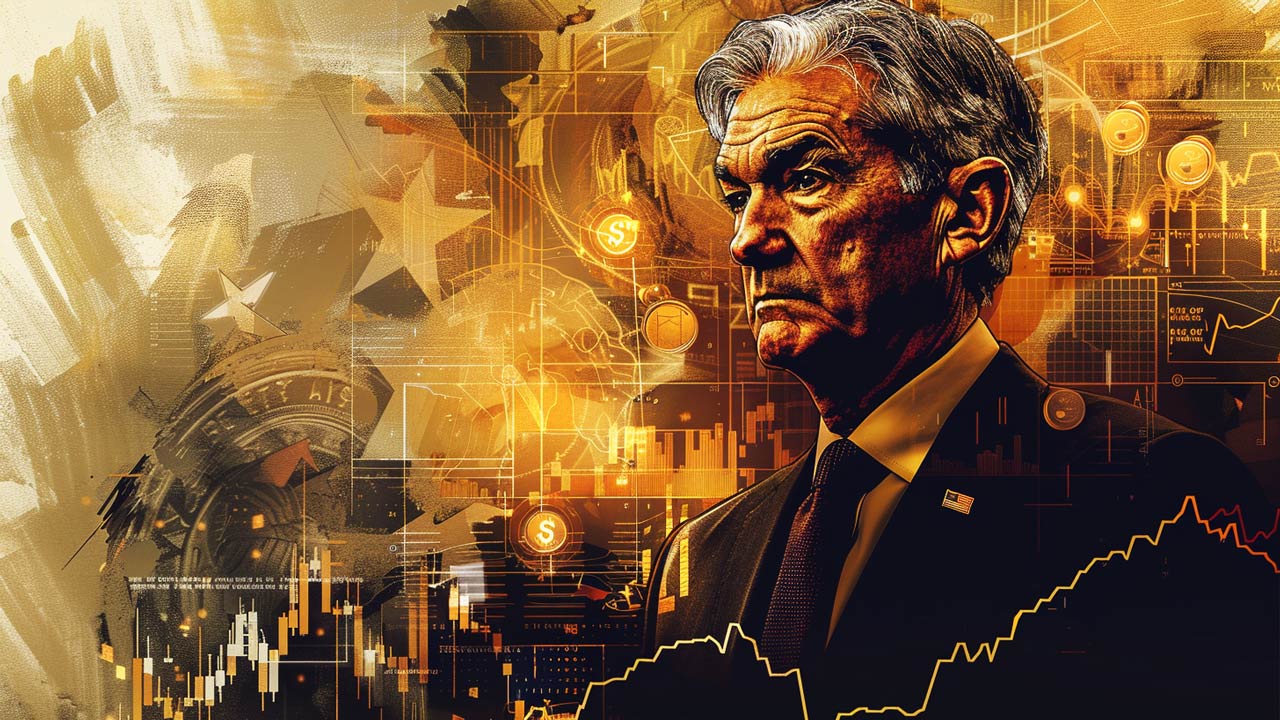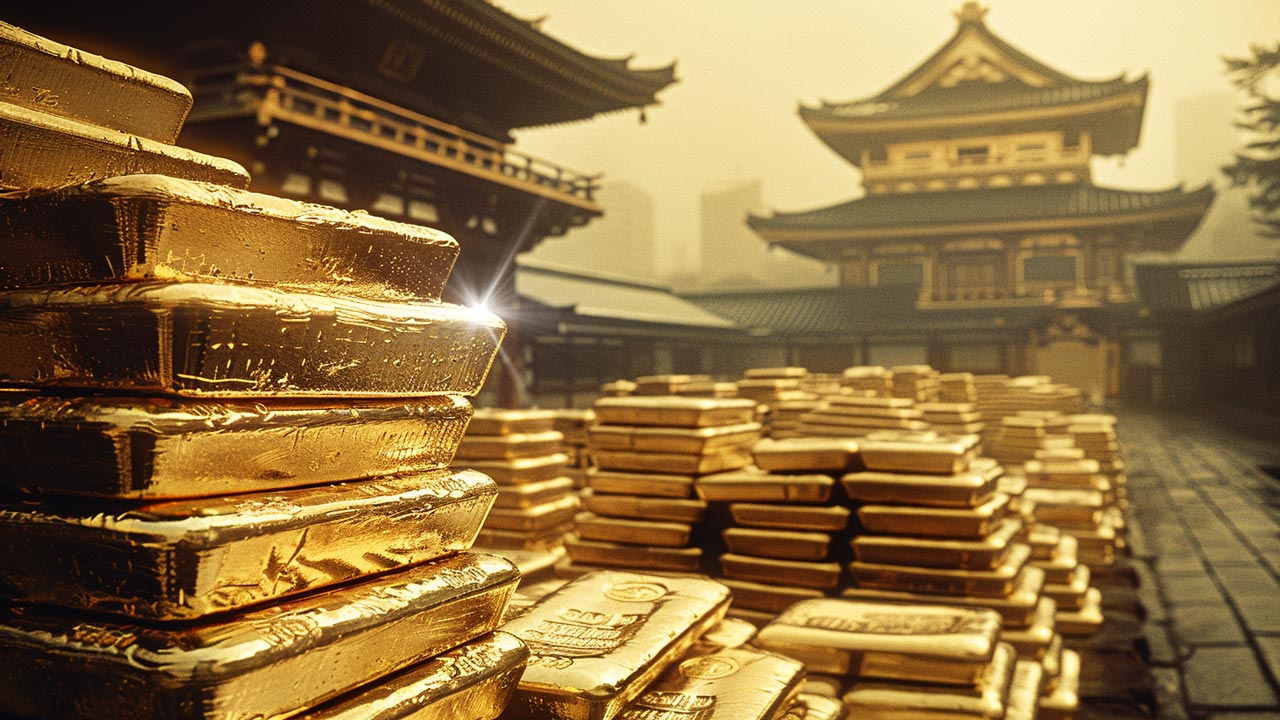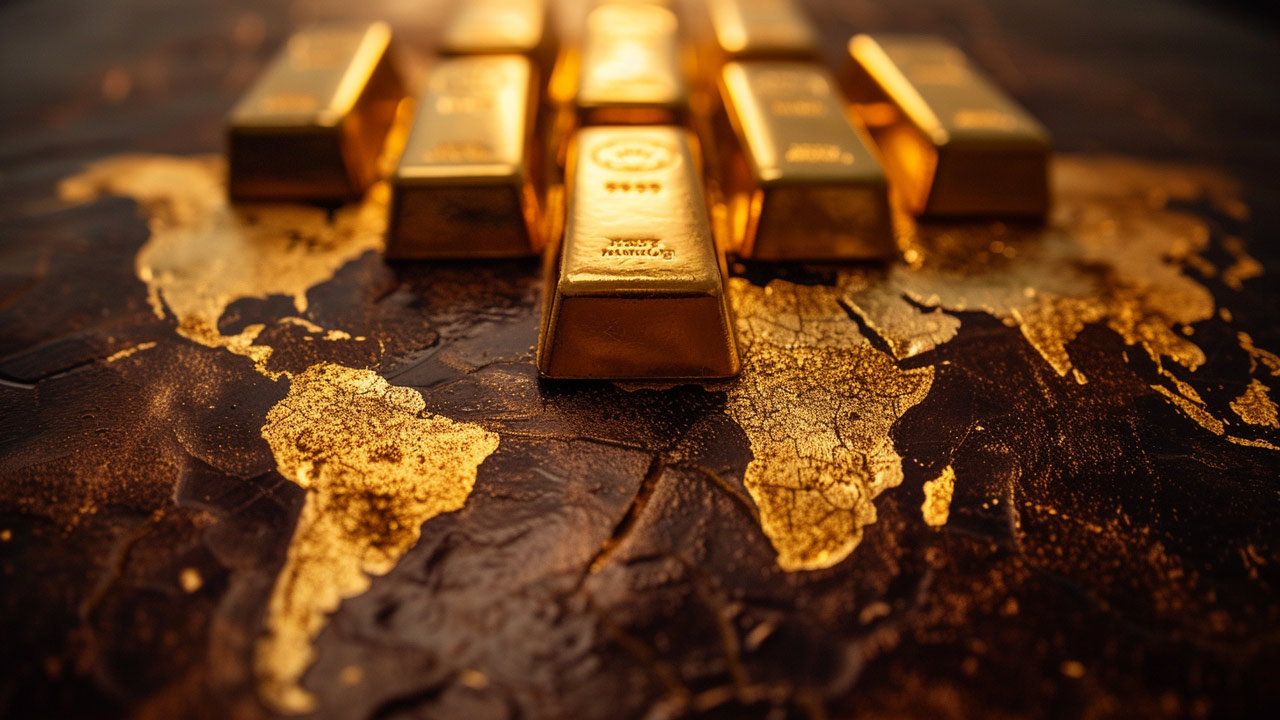Federal Reserve Hot Air Pumped Up a Stock Market Bubble; 93% of Gains Due to Monetary Policy
The mainstream financial media is like a stopped clock. Every once in a while, it stumbles into being right.
Last week, we had a veteran trader on CNBC Futures Now telling everybody to buy gold as long as central banks continue their expansionary monetary policy, all the while swearing he isn’t a “gold-bug.”

This week, we have analysis appearing on Yahoo Finance showing that the Federal Reserve has created a stock market bubble.
Of course, Peter Schiff has been saying this for months. In an interview on CNBC World Now last January, Peter explained how Fed monetary policy inflated a stock market bubble and engineered a fake wealth effect. He went on to argue that the December rate hike, small though it was, pricked the balloon, causing the volatility we continue to see today:
I think the volatility in the markets has been created by the Fed. The Federal Reserve is the reason the market is so high in the first place. They inflated it. They did it deliberately to engineer a wealth effect. It’s phony wealth, unfortunately. When you create phony wealth with a stock market bubble, the result is substantial malinvestment. You encourage all sorts of uneconomic activity to take place. You get rampant speculation. Of course, when the artificial high wears off – and that’s what’s happening now, particularly now that the Fed has raised interest rates and is posturing as if it’s going to raise them some more – the air is coming out of this bubble. And that is where the volatility is coming from.”
Over the weekend, Yahoo Finance reported on analysis that proves Peter’s contention, showing that 93% of the entire stock market move since 2008 was caused by Federal Reserve policy:
The bull market just celebrated its seventh anniversary. But the gains in recent years – as well as its recent sputter – may be explained by just one thing: monetary policy…The S&P 500 doubled in value from November 2008 to October 2014, coinciding with the Federal Reserve Bank’s ‘quantitative easing’ asset purchasing program. After three rounds of ‘QE,’ where the Fed poured billions of dollars into the bond market monthly, the Fed’s balance sheet went from $2.1 trillion to $4.5 trillion.”
Economist Brian Barnier’s work reveals the correlation between QE and the stock market. He said it’s not just coincidence, but a case of cause and effect. The Fed’s monetary policy did exactly what Peter said it did – created a false wealth effect:
As the financial crisis reached a fevered pitch in 2008, the Federal Reserve took to flooding the financial market with dollars by buying up bonds. Simultaneously, interest rates fell dramatically, as bond yields move in the opposite direction of bond prices. Barnier sees the Fed as responsible for over 93% of the market from the start of QE until today. During the first half of 2013, the Fed caused the entire market’s growth, he said.”
So, if the Fed created the stock market bubble, what happens when it stops pumping air into the balloon?
It deflates.
That’s exactly what we’ve seen happen over the last few months, and it’s one of the main reasons Peter has been saying the Fed will not continue raising rates, but will instead drop them back to zero and launch another round of quantitative easing. He made this very point just a few weeks after the rate hike:
I also said that I didn’t think the stock market could handle a rate hike, that the market had stopped rising based on the absence of quantitative easing. But if the Fed actually increased rates, the air would come out of the bubble a lot faster. I mean, it was seeping out, but once the Fed put a hole in it by actually raising rates, I thought it would go down a lot faster. So I thought that the Fed wouldn’t raise rates, because I knew that if they did, the markets would tank. So with the economy going down and the stock market going down, I knew that if the Fed raised rates, the next thing they would do is reduce them back to zero and launch QE4, and they would look like complete fools.”
Once again, we see mainstream analysis catching up to what those with a basic understanding of economic principles easily predicted.
All of this goes to show that no matter how badly it might want to, the Fed can’t raise rates without totally bursting the balloon. Between the need to keep the stock market bubble inflated and the fact that economic data points to a looming recession, it seems almost a certainty that any talk about raising interest rates is nothing but a bunch of hot air.
Get Peter Schiff’s latest gold market analysis – click here – for a free subscription to his exclusive weekly email updates.
Interested in learning more about physical gold and silver?
Call 1-888-GOLD-160 and speak with a Precious Metals Specialist today!




 Since Nayib Bukele became president of El Salvador, El Salvador has been in American media and global political discussion more than ever. While much of the attention focuses on Bukele’s mass incarceration of gang members and a decline in homicide of over 70%, Bukele has also drawn attention to his favoritism towards Bitcoin and how he […]
Since Nayib Bukele became president of El Salvador, El Salvador has been in American media and global political discussion more than ever. While much of the attention focuses on Bukele’s mass incarceration of gang members and a decline in homicide of over 70%, Bukele has also drawn attention to his favoritism towards Bitcoin and how he […] With gold hitting yet another awe-inspiring all-time high in the wake of Powell’s remarks reassuring markets (more or less) to expect rate cuts in 2024, a few analysts are pointing out risk factors for a correction — so is there really still room to run?
With gold hitting yet another awe-inspiring all-time high in the wake of Powell’s remarks reassuring markets (more or less) to expect rate cuts in 2024, a few analysts are pointing out risk factors for a correction — so is there really still room to run? Gold hit a new all-time nominal high, surpassing the previous record set in December of the previous year. The precious metal’s price reached approximately $2,140, indicating a robust and continuing interest in gold as a safe-haven asset, despite a rather peculiar lack of fanfare from the media and retail investors. This latest peak in gold […]
Gold hit a new all-time nominal high, surpassing the previous record set in December of the previous year. The precious metal’s price reached approximately $2,140, indicating a robust and continuing interest in gold as a safe-haven asset, despite a rather peculiar lack of fanfare from the media and retail investors. This latest peak in gold […] The gold price has been surging, with unprecedented central bank demand gobbling up supply. It has been a force to behold — especially as US monetary policy has been relatively tight since 2022, and 10-year Treasury yields have rocketed up, which generally puts firm downward pressure on gold against USD.
The gold price has been surging, with unprecedented central bank demand gobbling up supply. It has been a force to behold — especially as US monetary policy has been relatively tight since 2022, and 10-year Treasury yields have rocketed up, which generally puts firm downward pressure on gold against USD.  Total gold demand hit an all-time high in 2023, according to a recent report released by the World Gold Council. Last week, the World Gold Council (WGC) released its Gold Demand Trends report, which tracks developments in the demand for and use of gold around the world. Excluding over-the-counter (OTC) trade, 2023 gold demand fell slightly from 2022 […]
Total gold demand hit an all-time high in 2023, according to a recent report released by the World Gold Council. Last week, the World Gold Council (WGC) released its Gold Demand Trends report, which tracks developments in the demand for and use of gold around the world. Excluding over-the-counter (OTC) trade, 2023 gold demand fell slightly from 2022 […]
Peter
You are doing an outstanding job keeping us informed keep up the good work.
Pastor Coleman
This is mostly just common sense; it’s too bad that the private & public Powers-That-Be don’t have any. Not only is it too bad, it’s also harmful. Happy Trails
While your premise is correct, and fundamentally sound, there are no more fundamentals in play. Central banks will NOT stop pumping money in the market(s) until there is a total collapse. The rules have changed. Stick will continue to out pace metals until there is a radical change in global idealology which isn’t happening any time soon.
Yes – it’s a scam, but a multi-national one that cannot be stopped until it totally breaks down. It is a transfer of wealth from the middle class to the elite uber rich.